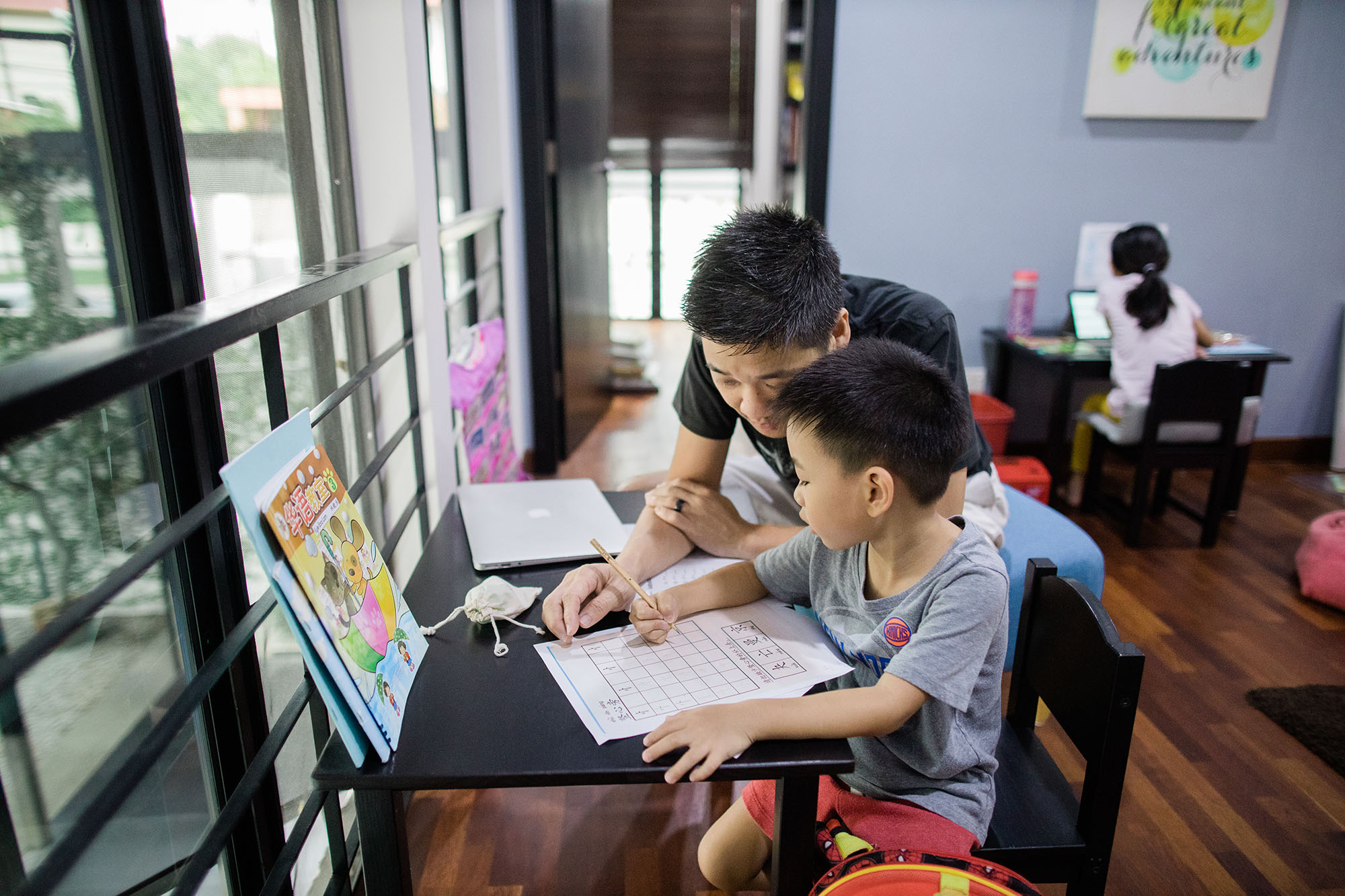I was just thinking recently, why is it sometimes so hard to go the extra mile to train our kids? Why do parents give in to temper tantrums, buying that toy in the shop just so that they can keep their screaming toddler quiet, even though you don’t think he should be getting yet another toy?
It occurred to me that as human beings, we naturally gravitate towards pleasure instead of pain. It is painful to discipline your child. It is difficult to walk past your screaming child, ignoring that attention seeking tantrum because it is painful. It is much easier to give in than to discipline ourselves because parenting is hard work.
It is every parent’s desire to ensure their child grows up to be responsible, caring adults that gives back to society. But those are not natural skills we are born with. Every child is born to be an attention seeker and naturally selfish. So when you find it is tough to train your child to help with the house chores, keep on persevering. As with every athlete, it takes years of training before they become Olympians.

If we want lasting change in our children, we need to go the extra mile. We need to learn and to find out the right methods to train our child (and each child is different!). One of my biggest challenges during this season is to homeschool my son. He’s 5 years of age, and he finds it really difficult to sit in front of the computer to learn. He doesn’t want to do the exercises that the school has given him.
Needless to say, I’ve screamed, threatened, bribed and cajooled him to just sit down and do his work. It’s been a daily struggle during this MCO season. But those methods didn’t work. They might have worked for a short while, but the next day, I am back at square one. I could just give up, and say, “it’s ok, he’s just 5. Why force him to conform? Just let him do whatever he wants to. It’s the easier way out.”
But deep down, I know that this is not what I really want for him. I want him to learn that school is important, and he cannot just do whatever he wants to do, whenever he wants to.
So I walk away, take a deep breath and start all over again.
I have to add a note here, not all parents would agree to my stand above and that is ok. If you are a parent that decides to let your child learn life skills instead of a formal education during this current season, that’s ok too because it is a choice that is meaningful to your family.
Remember my article that talked about the different parenting styles? Well, the book, “Parenting with Love and Logic” by Foster Cline and Jim Fay explains a different way of teaching responsibility by asking children questions and offering choices.
There are two simple rules explained in this book. The first is to set firm, loving limits using enforceable statements without showing anger, lecturing or using threats. This includes not using empty words that we cannot follow through like threatening to send your kids to a country far far away if they don’t listen to you. Secondly, when a child causes a problem, we have to emphathise lovingly and then hand the problem and its consequences back to the child.
So, coming back to my problem. This is what I decided to do (after taking multiple deep breaths).
I changed the way I spoke to him. Instead of saying, “You’re not able to concentrate! You are really lousy at Mandarin!” I say, “Good effort in trying to understand what the teacher is saying. Your writing is better today than yesterday!” Instead of praising the child with a generic phrase, “You are so smart!”, encourage them by being specific about the effort they have made in that particular activity. Build his self-worth instead of destroying it with our choice of words.
I used thinking words instead of fighting words. Commands and threats usually invites disobedience because it calls our kids to battle. Saying words like “If you don’t finish your homework, you won’t get to watch TV!” makes the child angry. ‘Obedience’ can follow through after threats but it’s usually done grudgingly. Thinking words, however, still gives them choices, for example, “Feel free to watch TV with your sister once you have completed your work.”
I gave him some freedom to make choices about how he does his work. The basic rule is that, work needs to be completed. But he has control over when he wants to do the work. So if he decides to do it after lunch when he really tired, he realises that it is harder to do a task when you are exhausted. After a long day, if he didn’t complete the work, the next day, I bring the same work to him again and ask him to complete it. And now, he has today’s work and the work from the day before. He soon learns that he cannot run away from his responsibility easily.
I found creative ways to do work. We dance and do jumping jacks before tackling a difficult activity. We treat ourselves to a nice snack between lessons. Children love play, so how can I make this fun instead of a chore?
Remember that consistency is the key to helping train your child in the area of responsibility. If changing your behaviour is hard, think about how challenging it is for your child. Mom and dad, you can do this.




